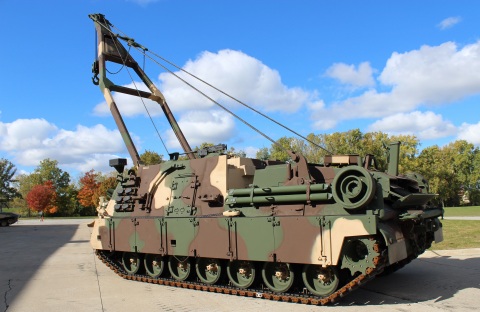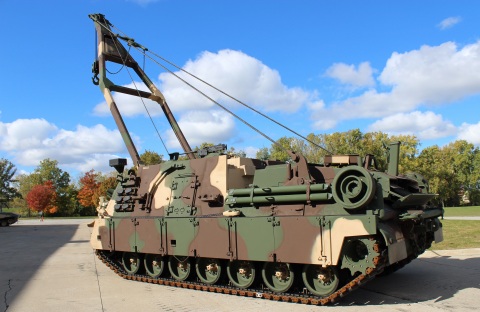STERLING HEIGHTS, Mich.--(BUSINESS WIRE)--The U.S. Army has awarded BAE Systems a $318 million contract to upgrade M88 recovery vehicles to the M88A3 configuration designed for single-vehicle recovery of the latest version of the Abrams tank. The new M88A3 configuration eliminates the necessity of using two vehicles to raise and move the tanks, which have increased in weight in recent years.
“As the U.S. Army’s primary recovery vehicle, the M88 plays a critical role in the Army’s Armored Brigade Combat Team,” said Dennis Hancock, recovery programs director for BAE Systems’ Combat Vehicles business. “We have partnered closely with the Army and industry partners to develop a solution that addresses the single-vehicle recovery gap. We are proud to continue to support the Army’s recovery needs by providing a next-generation solution to effectively rescue disabled tanks from the battlefield.”
The M88A3 configuration features an upgraded powertrain, suspension and tracks, increasing the vehicle’s speed, survivability and reliability. The M88A3 also features a seventh road wheel to reduce ground pressure and new hydropneumatic suspension units (HSUs) that enable the track to be locked out for greater control when recovering vehicles.
The contract is being awarded under an Other Transactional Authority (OTA) acquisition model for upgrading the M88A2 Heavy Equipment Recovery Combat Utility Lift Evacuation System (HERCULES) to the next generation M88A3 HERCULES.
BAE Systems’ M88 family of recovery vehicles has provided the Army with unprecedented capability for recovering stranded or disabled combat vehicles since the 1960s. Due to incremental weight increases of the Army’s Main Battle Tank over the years, the M88A3’s predecessor, the M88A2, is currently unable to safely perform single-vehicle recovery of the Abrams. BAE Systems has invested Independent Research and Development to develop the M88A3 for three years in an effort to identify, understand, and provide solutions to return to single-vehicle recovery of the tank.
The work will be performed at BAE Systems’ facilities in York, Pennsylvania; Aiken, South Carolina, Anniston, Alabama, and Sterling Heights, Michigan.




